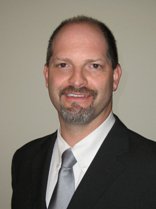Growing In Godliness Blog
“The Power of Two”
Categories: Author: Mark McCrary, Evangelism, Relationships The Power of Two
The Power of Two
By Mark McCrary
“If you want something done right, you’ve got to do it yourself!” How many times have we heard that? How many times have we said that? Have you ever looked at Luke 10 and wondered why Jesus sent His disciples “two by two?”
One of the things that made the life of Paul so wonderful is the fact he never starred in “The Adventures of Paul the Apostle.” Like the great servants of God who had gone before him—Moses and Joshua, Ruth and Naomi, Elijah and Elisha—he did his work with others. He lived the wisdom of King Solomon, “Two are better than one, because they have a good reward for their labor. For if they fall, one will lift up his companion. But woe to him who is alone when he falls, For he has no one to help him up. Again, if two lie down together, they will keep warm; But how can one be warm alone? Though one may be overpowered by another, two can withstand him. And a threefold cord is not quickly broken” (Ecclesiastes 4:9-12). He lived “The Power of Two.”
The “Power of Two” in Paul’s life really began with Barnabas in Acts 11, as the church in Jerusalem sent him to Antioch after the “wall of separation” had fallen between Jews and Gentiles. We are told in Acts 11:23 that great things were taking place there. Yet, verse 25 tells us this effective teacher felt, on some level, the need for help and left this blossoming work to find a certain disciple he had defended before the church in Jerusalem less than 10 years before.
Saul joined the side of his old defender, and one of the greatest “teams” in history was formed. Chapters 13-15, spanning a period of some 11 years, show remarkably the “Power of Two.” They traveled together. They preached together. They disputed error together. Together, they left churches in better shape.
What are the lessons preachers and teachers can learn from Paul and Barnabas? First, there is benefit of diversity. Paul, as evidenced in Acts 14:12 and other verses (Acts 13:7, 43, 46; 14:1), seemed to have been the more active orator. While preaching in Lystra, he was believed to be Hermes, messenger of the Greek gods. Barnabas, on the other hand, was thought to be Zeus. F.F. Bruce suggests in his commentary on Acts that he was thus identified because of “his more dignified bearing.” This is, of course, conjecture, but it does illustrate the reality that they were two different men contributing something needed to the same work. Diversity in abilities is sometimes one of the great powers of two. One may have a strength needed in one area of work at a particular moment, while someone else brings strength in other areas and at other times.
There is also the benefit of shared encouragement. How often did Barnabas get tired, yet Paul’s zeal fueled him on? How often did Paul get frustrated, yet Barnabas’ steady temperament settled him down? This is one of our great needs as Christians today—someone to lift us up when we are down; to urge us forward in our task when all we want to do is quit.
Then there is the benefit of shared wisdom. The Bible speaks often of the need of good counselors (Proverbs 11:14; 15:22; 24:6). Paul likely relied upon the “seasoned” advice of Barnabas from time to time. Perhaps at other times Paul’s take on a situation was more accurate and Barnabas benefited. Preachers and teachers would do well to have someone close by for practical wisdom and guidance.
Finally, there is the benefit of a shared harvest. Barnabas left the fields “white for harvest” to make a trip of 300 miles for one reason: he knew two could do more than one. Why is it never recorded that Barnabas became angry over Paul’s more vocal position? When he was considered a “lesser” god than Barnabas, why didn’t Paul get angry? Because they were selfless men, and the harvest was all that mattered. Workers look to the potential of a larger harvest with which to glorify God. What keeps some from never “teaming” with others and discovering the power of shared work is pride and rivalry. How should you feel when another preacher or teacher is thanked for a point well made? Rejoice that the gospel is preached (1 Corinthians 3:5-6; Romans 12:15)! The harvest is our goal, not our place in the harvesting.
What, then, do we learn from Paul and Barnabas? Learn the power of two! Some preachers may preach with another preacher at the same church. Others may find the “Power of Two” in another preacher close by. Some men or women may “team teach” a class. Open your heart to the help of others—and be willing to give it as well.






